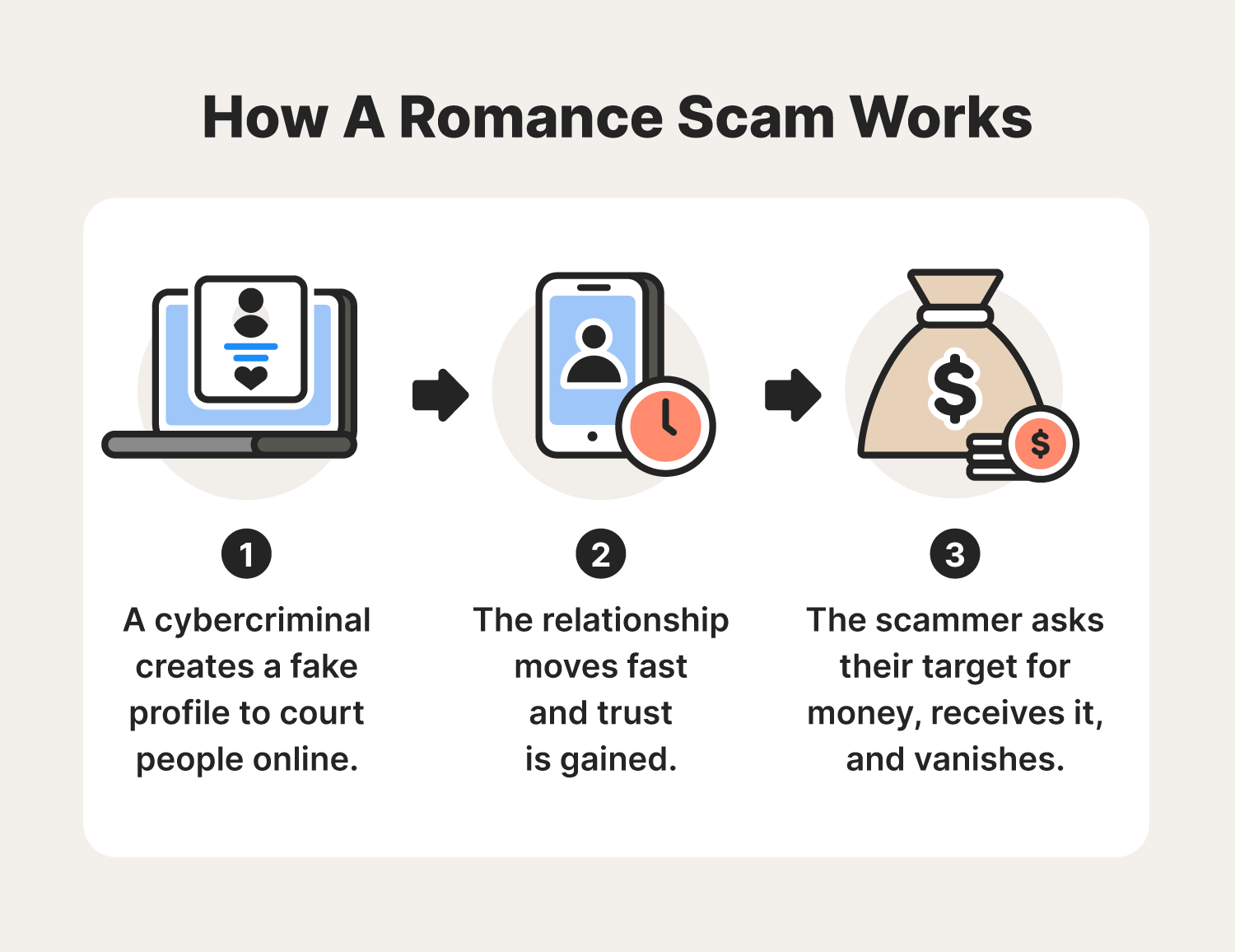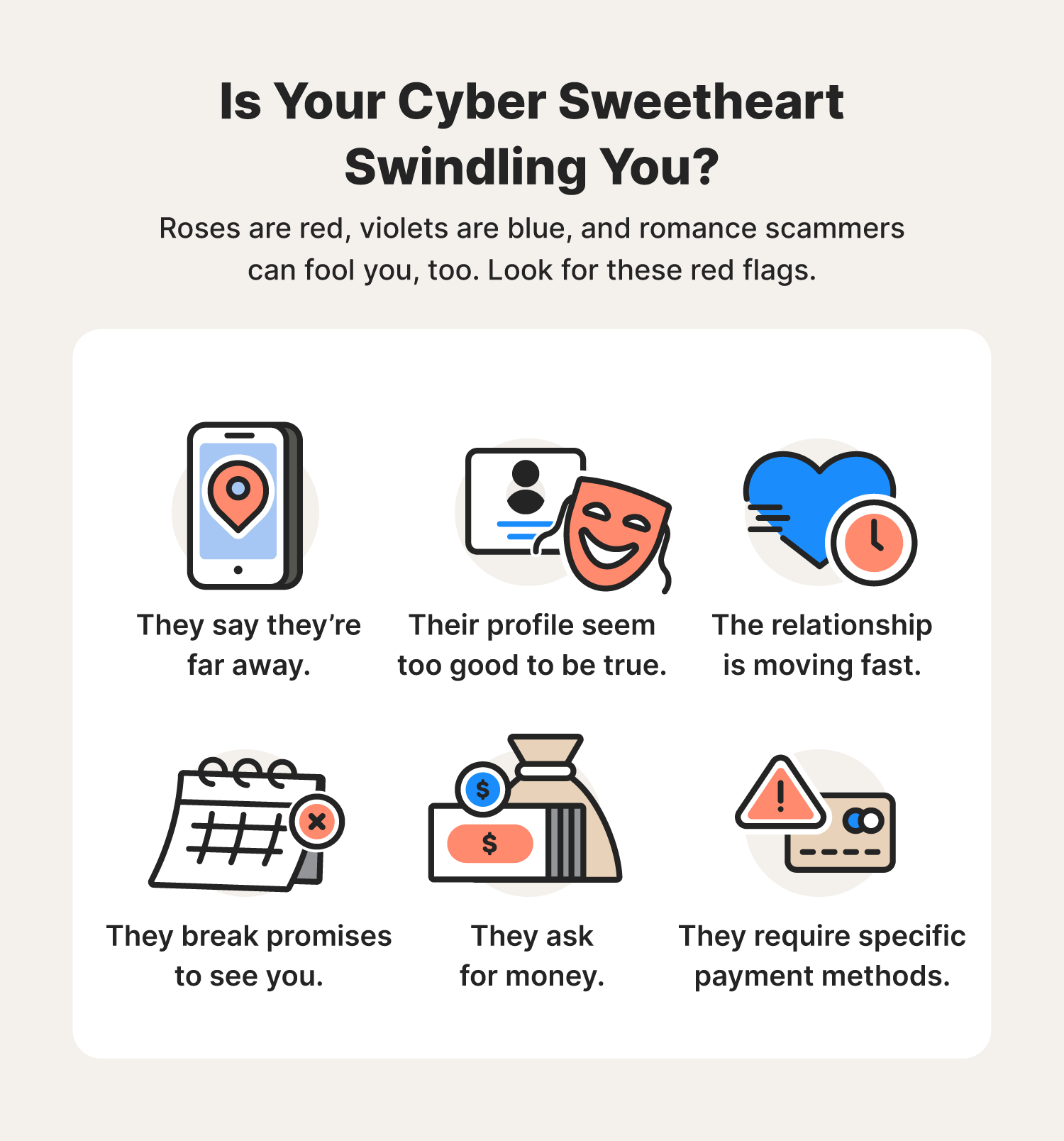Are you aware of "Romance Scams: Protect Yourself From Online Predators"?
Editor's Notes: "Romance Scams: Protect Yourself From Online Predators" has published today. This topic is very important to know because if you ever use online dating, you may have concerns about romance scams. Scammers create fake online profiles to prey on unsuspecting individuals seeking love and companionship. They often pretend to be someone they're not, showering their victims with attention and affection. Once they gain trust, they start asking for money or personal information, which can lead to financial loss or identity theft. That's why it's crucial to be aware of the signs of a romance scam and to take steps to protect yourself.
Through careful analysis and thorough research, we've compiled this comprehensive guide to help you recognize and avoid romance scams. By understanding the tactics used by scammers, you can protect yourself from emotional and financial harm.
Key Differences or Key Takeaways
Transition to main article topics
FAQ
If you suspect you're being targeted by a romance scammer, it's crucial to take immediate action to protect yourself. Here are answers to some frequently asked questions about romance scams to help you understand how these predators operate and how to avoid becoming a victim.

Social Security Scam Calls 2024 - Randi Beatriz - Source lizaadrianne.pages.dev
Question 1: How do romance scammers typically approach their victims?
Romance scammers often create fake profiles on social media or dating websites to initiate contact with potential victims. They may use stolen photos and adopt a charming persona to gain trust. Their initial messages are often flattering and romantic, designed to evoke emotions.
Question 2: What are the warning signs of a romance scam?
Be wary if someone you've never met in person professes strong feelings for you quickly. Scammers may also ask for money or personal information early on, or try to isolate you from friends and family.
Question 3: How can I protect myself from romance scams?
Never send money or personal information to someone you haven't met in person. Be cautious of individuals who claim to be from another country or who have a sob story to gain sympathy. Trust your instincts, and if something feels suspicious, it probably is.
Question 4: What should I do if I think I'm being targeted by a romance scammer?
Immediately cease all communication and report the scammer to the website or social media platform where you encountered them. Consider contacting your local authorities as well.
Question 5: How common are romance scams?
Romance scams are unfortunately prevalent, costing victims millions of dollars each year. According to the FTC, romance scams accounted for over $547 million in losses in 2021 alone.
Question 6: What are the consequences of falling victim to a romance scam?
Besides financial loss, romance scams can have devastating emotional consequences. Victims may experience feelings of betrayal, embarrassment, and isolation. They may also be more vulnerable to future scams or exploitation.
Remember, it's never too late to protect yourself from online predators. By educating yourself about romance scams, recognizing the warning signs, and taking appropriate action, you can avoid becoming a victim. For more information and resources, visit Romance Scams: Protect Yourself From Online Predators.
If you suspect you've been scammed, don't hesitate to seek help from trusted individuals or organizations. You're not alone, and there are resources available to assist you in overcoming this challenging situation.
Tips
Protect your heart and your wallet. Romance scams have become increasingly common, targeting individuals seeking love and companionship online. By following these tips, you can shield yourself from online predators and avoid falling prey to their deceptive tactics.

Romance Scams - City of Roseville - Source www.roseville.ca.us
Tip 1: Verify Their Identity:
Use reverse image search to check if their profile pictures appear elsewhere online. Contact mutual friends or family members to confirm their identity.
Tip 2: Be Cautious of Quick Professions of Love:
Genuine romantic connections generally develop over time. Scammers often rush their declarations to gain your trust quickly.
Tip 3: Protect Your Personal Information:
Never share sensitive data like your Social Security number, bank account details, or home address with someone you don't know well.
Tip 4: Don't Send Money or Gifts:
Legitimate romances don't involve financial transactions early on. Scammers will often use heart-wrenching stories to manipulate you into sending money or gifts.
Tip 5: Trust Your Instincts:
If something feels off, trust your gut. Scammers may use elaborate tactics to gain your sympathy or seem irresistible, but a genuine connection should not cause doubt or suspicion.
Tip 6: Report Suspicious Activity:
Inform the dating platform or website about any suspicious behavior. Sharing your experience can help protect others from falling victim to similar scams.
By implementing these measures, you can create a safer online environment for yourself and safeguard your emotional and financial well-being.
Remember, true love should never be rushed, based on manipulation, or involve financial obligations. Be vigilant, protect yourself, and find genuine connections without compromising your safety.
Romance Scams: Protect Yourself From Online Predators
Romance scams exploit the vulnerabilities of individuals seeking love and companionship online. To safeguard against these predatory tactics, understanding their key aspects is crucial.
These key aspects highlight the manipulative tactics and loopholes exploited by romance scammers. Understanding these elements empowers individuals to stay vigilant, protect their finances and personal information, and avoid the devastating consequences of these online predators.

Romance Scammer Photos 2024 - Gwen Pietra - Source jacquelinwesme.pages.dev
Romance Scams: Protect Yourself From Online Predators
Romance scams are a type of online fraud that targets people looking for love and companionship. Scammers create fake online profiles and use them to build relationships with victims, often gaining their trust and affection. Once the scammer has established a connection, they will start asking for money, gifts, or personal information. Victims of romance scams often lose large sums of money and may suffer emotional distress.

Protect Yourself from Scams and Fraudsters | University of Nebraska - Source nufcu.org
There are a number of red flags that can help you identify a romance scam. These include:
- The person you're talking to is very quick to declare their love for you.
- They ask for money, gifts, or personal information early on in the relationship.
- They claim to be from a wealthy or influential family.
- They avoid meeting you in person or making video calls.
- Their profile picture is blurry or stolen from another person.
If you think you may be the victim of a romance scam, it's important to report it to the authorities and to your bank or credit card company. You should also block the scammer from contacting you.
Romance scams are a serious problem, but you can protect yourself from them by being aware of the red flags and by following these tips:
Don't share personal information or financial information with someone you don't know well.
Meet in person before you send money or gifts.
Be wary of people who claim to be from a wealthy or influential family.
If you're unsure about someone, trust your gut and walk away.
By following these tips, you can help protect yourself from romance scams and enjoy online dating safely.
Here are some additional resources that you may find helpful: